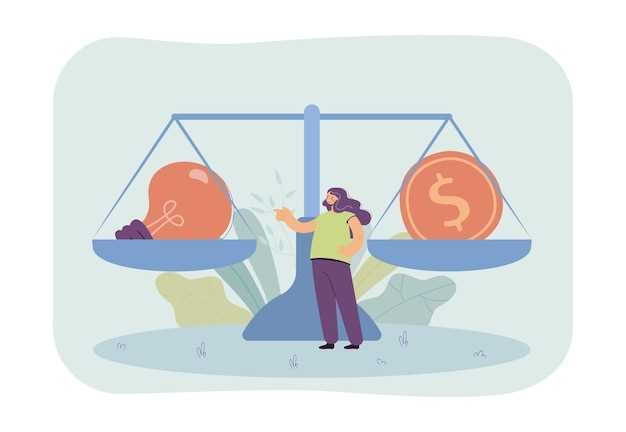
In today’s ever-changing world, the pursuit of knowledge and financial stability has become more crucial than ever before. Understanding the correlation between education and economic mobility is essential in breaking the vicious cycle of poverty that plagues many communities worldwide. By equipping individuals with the necessary tools and resources, we can empower them to overcome the barriers that hinder their progress and pave the way for a brighter future.
Unlocking the Potential: Education serves as a key that unlocks the potential within individuals, enabling them to rise above their circumstances and achieve economic mobility. It provides a pathway for personal growth, fostering critical thinking, problem-solving skills, and creativity. Through education, individuals gain the knowledge and skills needed to navigate the complexities of the modern world, opening doors to new opportunities and higher-paying jobs.
Breaking the Chains: Poverty often perpetuates itself through generations, creating a cycle that seems impossible to escape. However, by addressing the root causes and providing access to quality education, we can break these chains and create a ripple effect of positive change. Education empowers individuals to challenge societal norms, overcome systemic barriers, and rewrite their own narratives. It instills a sense of self-worth and confidence, enabling individuals to envision a future beyond the limitations imposed by poverty.
Building Stronger Communities: Education not only benefits individuals but also plays a vital role in building stronger communities. When individuals are equipped with knowledge and skills, they become active contributors to society, driving economic growth and social progress. By investing in education, we invest in the collective well-being of our communities, fostering a culture of empowerment, innovation, and inclusivity.
Creating Lasting Change: Breaking the cycle of poverty requires a multi-faceted approach that encompasses not only education but also financial literacy and support. By combining education with financial upliftment programs, individuals can learn how to manage their finances, make informed decisions, and break free from the cycle of debt and financial instability. This holistic approach ensures that individuals not only acquire knowledge but also have the means to apply it effectively in their lives.
In conclusion, education and economic mobility are intrinsically linked, offering individuals the opportunity to transcend the limitations imposed by poverty. By investing in education and providing the necessary resources, we can empower individuals to break free from the cycle of poverty, creating a more equitable and prosperous society for all.
The Link between Education and Economic Mobility

Education plays a crucial role in determining an individual’s ability to move up the economic ladder and break free from the cycle of poverty. By acquiring knowledge, skills, and qualifications, individuals can enhance their prospects for upward social and economic mobility.
Education serves as a catalyst for economic mobility by providing individuals with the tools and opportunities to improve their financial well-being. It equips them with the necessary skills to secure higher-paying jobs, access better career prospects, and increase their earning potential. Additionally, education fosters critical thinking, problem-solving abilities, and creativity, which are highly valued in today’s knowledge-based economy.
Furthermore, education empowers individuals to make informed decisions about their finances, investments, and entrepreneurial endeavors. It equips them with the knowledge and understanding of economic principles, financial literacy, and market dynamics, enabling them to navigate the complexities of the economic landscape and make sound financial choices.
Education also plays a pivotal role in reducing income inequality and promoting social mobility. It provides individuals from disadvantaged backgrounds with a pathway to overcome systemic barriers and achieve upward mobility. By offering equal access to quality education, society can level the playing field and create opportunities for individuals to break free from the constraints of poverty.
- Education fosters social mobility by empowering individuals to transcend their socioeconomic circumstances and achieve higher levels of economic success.
- Education equips individuals with the skills and knowledge necessary to adapt to changing economic landscapes and technological advancements.
- Education promotes economic growth by cultivating a skilled workforce and driving innovation and productivity.
- Education empowers individuals to become active participants in the economy, contributing to their own financial well-being and the overall prosperity of society.
In conclusion, the link between education and economic mobility is undeniable. Education serves as a powerful tool for individuals to break free from the cycle of poverty, enhance their earning potential, and achieve upward social and economic mobility. By investing in education and ensuring equal access to quality educational opportunities, societies can create a more inclusive and prosperous future for all.
The Impact of Quality Education on Breaking the Cycle of Poverty
Access to a high standard of learning plays a crucial role in disrupting the recurring pattern of impoverishment. By providing individuals with the necessary knowledge and skills, quality education serves as a powerful catalyst for social and economic advancement. This section explores the profound influence that a well-rounded education has on breaking free from the cycle of poverty.
Empowering Individuals through Knowledge
Quality education empowers individuals by equipping them with the knowledge and understanding needed to navigate the complexities of the modern world. It goes beyond the mere acquisition of facts and figures, fostering critical thinking, problem-solving abilities, and analytical skills. By nurturing a thirst for knowledge, education enables individuals to make informed decisions, seize opportunities, and break free from the constraints of poverty.
Unlocking Economic Opportunities
One of the key benefits of quality education is its ability to unlock a wide range of economic opportunities. By providing individuals with the necessary skills and qualifications, education enhances their employability and opens doors to higher-paying jobs. Moreover, it equips individuals with the entrepreneurial mindset needed to create their own economic opportunities, fostering innovation and economic growth within communities. Through education, individuals can break free from the limited economic prospects that often perpetuate the cycle of poverty.
Overcoming Barriers to Education for Low-Income Individuals
Addressing the challenges faced by individuals from economically disadvantaged backgrounds in accessing quality education is crucial for promoting social mobility and reducing poverty. This section explores the various obstacles that low-income individuals encounter on their educational journey and highlights potential strategies to overcome these barriers.
| Barriers | Strategies for Overcoming |
|---|---|
| Limited Financial Resources | Providing scholarships, grants, and financial aid programs to alleviate the burden of tuition fees and other educational expenses. |
| Inadequate Access to Educational Resources | Investing in infrastructure development, such as building schools and libraries in underserved areas, and ensuring availability of textbooks, technology, and internet access. |
| Lack of Support and Guidance | Establishing mentorship programs, career counseling services, and academic support systems to assist low-income individuals in navigating the education system. |
| Family and Work Responsibilities | Implementing flexible learning options, such as evening classes or online courses, to accommodate the needs of individuals who have familial or work obligations. |
| Discrimination and Stereotyping | Promoting diversity and inclusion in educational institutions, raising awareness about the harmful effects of discrimination, and implementing policies to address bias and prejudice. |
By addressing these barriers and implementing effective strategies, society can empower low-income individuals to overcome the obstacles they face in accessing education. This, in turn, can contribute to breaking the cycle of poverty and fostering economic mobility for all.
Investing in Early Childhood Education for Long-Term Economic Mobility
Ensuring a prosperous future for individuals and communities requires a strategic focus on the development of young children. By prioritizing investments in early childhood education, we can lay the foundation for long-term economic mobility and break the cycle of poverty. This section explores the significance of investing in early childhood education and its potential to create positive social and economic outcomes.
Unlocking Potential: The Power of Early Childhood Education
Early childhood education encompasses a range of programs and initiatives that support the cognitive, social, and emotional development of children from birth to age five. These formative years are critical for shaping a child’s future trajectory, as they lay the groundwork for future learning, behavior, and overall well-being. By investing in high-quality early childhood education, we can unlock the full potential of young children, equipping them with the necessary skills and knowledge to thrive in school and beyond.
The Economic Returns of Early Childhood Education
Investing in early childhood education not only benefits individual children and families but also yields substantial economic returns for society as a whole. Research consistently demonstrates that high-quality early childhood education programs lead to improved educational outcomes, reduced rates of crime and incarceration, increased workforce productivity, and decreased reliance on social welfare programs. By investing in the early years, we can create a more prosperous and equitable society, where individuals have the opportunity to break free from the constraints of poverty and achieve long-term economic mobility.
| Benefits of Investing in Early Childhood Education |
|---|
| Improved school readiness and academic achievement |
| Enhanced social and emotional development |
| Reduced rates of crime and incarceration |
| Increased workforce productivity |
| Decreased reliance on social welfare programs |
Investing in early childhood education is not only a moral imperative but also a smart economic decision. By prioritizing the well-being and development of our youngest citizens, we can break the cycle of poverty and create a more prosperous and inclusive society for all.
Vocational Education: A Pathway to Economic Mobility for Non-Traditional Students
Exploring alternative pathways to financial independence and upward social mobility is crucial for individuals who do not fit the traditional mold of education and employment. Vocational education offers a promising route for non-traditional students to break free from the cycle of limited opportunities and poverty.
|
1. Diverse Skill Development: Vocational education equips non-traditional students with a diverse range of practical skills that are highly valued in the job market. By focusing on hands-on training and real-world applications, vocational programs enable individuals to develop expertise in specific trades or industries, opening doors to well-paying jobs and career advancement. |
|
2. Flexibility and Accessibility: Unlike traditional educational pathways, vocational education offers greater flexibility and accessibility for non-traditional students. These programs often have flexible schedules, allowing individuals to balance their education with work and family responsibilities. Additionally, vocational education is more affordable and time-efficient compared to traditional four-year degree programs, making it an attractive option for those seeking economic mobility. |
|
3. Industry-Relevant Training: Vocational education focuses on providing industry-specific training, ensuring that non-traditional students acquire the skills and knowledge needed to succeed in their chosen fields. This targeted approach increases their employability and enables them to compete in sectors with high-demand jobs, ultimately leading to better wages and improved economic prospects. |
|
4. Entrepreneurial Opportunities: Vocational education not only prepares non-traditional students for traditional employment but also fosters an entrepreneurial mindset. By acquiring practical skills and knowledge, individuals can start their own businesses or pursue freelance work, creating their own economic opportunities and breaking free from the constraints of poverty. |
|
5. Supportive Learning Environment: Vocational education often provides a supportive learning environment that caters to the unique needs of non-traditional students. These programs offer personalized attention, smaller class sizes, and mentorship opportunities, ensuring that individuals receive the necessary guidance and support to succeed academically and professionally. |
In conclusion, vocational education serves as a viable pathway to economic mobility for non-traditional students. By equipping individuals with diverse skills, offering flexibility and accessibility, providing industry-relevant training, fostering entrepreneurial opportunities, and creating a supportive learning environment, vocational programs empower individuals to break free from the cycle of poverty and achieve financial independence.
The Role of Higher Education in Breaking the Cycle of Poverty
Higher education plays a crucial role in disrupting the intergenerational transmission of poverty and creating pathways to socioeconomic advancement. By equipping individuals with the knowledge, skills, and opportunities necessary for personal and professional growth, higher education serves as a catalyst for social mobility and economic empowerment.
Empowering Individuals: Higher education empowers individuals by providing them with the tools and resources to overcome socioeconomic barriers. Through rigorous academic programs, students develop critical thinking, problem-solving, and communication skills that are essential for success in the modern workforce. Additionally, higher education fosters personal growth, self-confidence, and a sense of agency, enabling individuals to break free from the constraints of poverty and pursue their aspirations.
Expanding Opportunities: Access to higher education expands opportunities for individuals from disadvantaged backgrounds. By offering scholarships, grants, and financial aid, educational institutions strive to make education more accessible and affordable. This ensures that talented individuals, regardless of their socioeconomic status, have the opportunity to pursue higher education and unlock their full potential. Moreover, higher education institutions often provide career counseling, internships, and networking opportunities, further enhancing students’ employability and facilitating their transition into the labor market.
Driving Innovation and Economic Growth: Higher education institutions serve as hubs of innovation, research, and development. By fostering a culture of intellectual curiosity and creativity, these institutions contribute to technological advancements, scientific breakthroughs, and entrepreneurial endeavors. This, in turn, drives economic growth and creates new job opportunities, benefiting both individuals and communities. By equipping students with the skills and knowledge needed to thrive in a rapidly evolving global economy, higher education plays a pivotal role in breaking the cycle of poverty and fostering sustainable economic development.
Transforming Communities: Higher education has the power to transform entire communities by breaking the cycle of poverty. When individuals from disadvantaged backgrounds obtain higher education degrees, they not only improve their own socioeconomic status but also serve as role models and catalysts for change within their communities. By inspiring others and advocating for educational opportunities, these individuals contribute to the creation of a more equitable society, where education is valued as a means of social mobility and poverty reduction.
In conclusion, higher education serves as a transformative force in breaking the cycle of poverty. By empowering individuals, expanding opportunities, driving innovation, and transforming communities, higher education plays a vital role in creating a more just and prosperous society for all.



